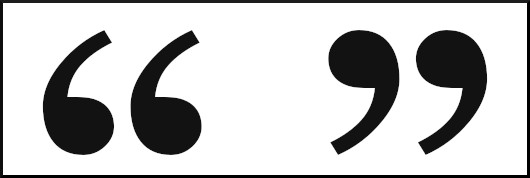Nigel Rees? Stephen Fry? Anonymous?

Question for Quote Investigator: This website contains numerous examples of quotations that have been reassigned from anonymous or forgotten individuals to famous figures. The general phenomenon has been designated “Churchillian Drift” because of the large number of sayings that have been incorrectly attributed to Winston Churchill. Would you please explore the origin of this term?
Reply from Quote Investigator: Nigel Rees is an English quotation expert who has authored numerous valuable reference works. He has also served as the host of a long-running BBC panel game show about quotations called “Quote…Unquote”. He published a series of books based on the show. In 1983 the third volume in the series appeared, and Rees penned a comically exaggerated remark about Bernard Shaw:1
Hence, Rees’s First Law of Quotation: ‘When in doubt, ascribe all quotations to George Bernard Shaw’. The law’s first qualification is: ‘Except when they obviously derive from Shakespeare, the Bible or Kipling.’ The first corollary is: ‘In time, all humorous remarks will be ascribed to Shaw whether he said them or not’.
Rees noted that Winston Churchill was another powerfully magnetic figure in the world of quotations. Boldface added to excerpts by QI:
People are notoriously lax about quoting and attributing remarks correctly, as witness an analogous process I shall call Churchillian Drift.
The Drift is almost indistinguishable from the First Law, but there is a subtle difference. Whereas quotations with an apothegmatic feel are normally ascribed to Shaw, those with a more grandiose or belligerent tone are, as if by osmosis, credited to Churchill.
Rees listed other figures that the popular mind had settled upon as the likely sources of quotable sayings including: Johann Wolfgang von Goethe, Oscar Wilde, and Orson Welles
QI observes that the wits, sages, heroes, villains, stars, and lovers of one era tend to displace some of the leading figures of previous eras. Thus, the list of magnetic figures in the quotation domain changes over time.
Below are additional selected citations in chronological order.
Nigel Rees publishes a periodical called “The ‘Quote…Unquote’ Newsletter”. In the April 1993 issue the descriptions of the “First Law of Quotation” and “Churchillian Drift” were reprinted.2
In 2009 Rees published a piece on the “Forbes” website that included the following:3
Long ago, I coined the term “Churchillian Drift” to describe the process whereby the actual originator of a quotation is often elbowed to one side and replaced by someone more famous. So to Churchill or Napoleon would be ascribed what, actually, a lesser-known political figure had said. The process occurs in all fields.
In 2014 English actor and comedian Stephen Fry published “More Fool Me: A Memoir” which included a discussion of his self-described overindulgence in alcohol and drugs. Fry mentioned a quotation that is often attributed to Winston Churchill, and he employed the variant term “Churchillian creep” instead for “Churchillian drift”:4
‘Young men sow wild oats, old men grow sage,’ Churchill is reputed to have said. It almost never is Churchill. In fact collectors of quotations call such laziness in attribution ‘Churchillian creep’.
There is a Quote Investigator article about the “wild oats” quotation available here. Interestingly, Churchill probably did employ the quip on his 77th birthday, but it was already circulating before he was born.
In 2017 Nigel Rees mentioned in his newsletter the book by Stephen Fry. Rees indicated that the correct term was “Churchillian Drift”:5
As Churchill definitely didn’t say, ‘Always verify your references, Stephen.’ My coinage Churchillian Drift it should be, as readers of this Newsletter must know by now.
In conclusion, Nigel Rees should receive credit for the term “Churchillian Drift” which he coined by 1983. Stephen Fry suggested the alternative phrase “Churchillian Creep”.
Image Notes: Quotation marks from Gimp (GNU Image Manipulation Program).
Acknowledgement: Thanks to Nigel Rees who told QI about the 1983 citation.
Update History: On June 8, 2024 the 1983 citation was added to the article, and the article was partially rewritten.
- 1983, “Quote … Unquote” 3, by Nigel Rees, Section: Preface, Quote Page 8, George Allen & Unwin, London. England. (Verified with scans) ↩︎
- The Quote Unquote Newsletter 1992-1996, Issue: April 1993, Volume 2, Number 2, Edited by Nigel Rees, Article: The Vagueness Is All, Newsletter Published and distributed by Nigel Rees, Hillgate Place, London, Website: www.quote-unquote.org.uk (Compilation 1992-1996 available as Kindle ebook) ↩︎
- Website: Forbes, Article title: Policing Word Abuse, Article author: Nigel Rees, Date on website: August 13, 2009, Website description: Business news. (Accessed forbes.com on November 13, 2019) link ↩︎
- 2014 Copyright (2015 U.S. Edition), More Fool Me: A Memoir by Stephen Fry, Quote Page Unnumbered, The Overlook Press, Peter Mayer Publishers, New York. (Google Books Preview) ↩︎
- 2017 April, The Quote Unquote Newsletter, Volume 26, Number 2, Edited by Nigel Rees, Article Title, S. Fry Is a Creep, Published and Distributed by Nigel Rees, Hillgate Place, London, Website: www.quote-unquote.org.uk ↩︎